The Beatles – Let It Be
(Apple Records 1970 PCS7096)
Matrix No’s: YEX773-2U CMM 16/YEX774-3U GTM 24 – UK Pressing
Sleeve in Excellent+ condition
– some wear to edges/corners, some small creases to laminate and some light rubbing
Vinyl in Nr MINT condition
(there are some surface marks visible on the vinyl when held up to the light but they don’t affect the sound quality – small name written on side 1 label)
The Beatles were an English rock band, formed in Liverpool in 1960. With members John Lennon, Paul McCartney, George Harrison and Ringo Starr, they became widely regarded as the foremost and most influential act of the rock era. Rooted in skiffle, beat, and 1950s rock and roll, the Beatles later experimented with several musical styles, ranging from pop ballads and Indian music to psychedelia and hard rock, often incorporating classical elements and unconventional recording techniques in innovative ways. In the early 1960s, their enormous popularity first emerged as “Beatlemania”, but as the group’s music grew in sophistication, led by primary songwriters Lennon and McCartney, they came to be perceived as an embodiment of the ideals shared by the counterculture of the 1960s.
The Beatles built their reputation playing clubs in Liverpool and Hamburg over a three-year period from 1960, with Stuart Sutcliffe initially serving as bass player. The core of Lennon, McCartney and Harrison went through a succession of drummers, including Pete Best, before asking Starr to join them. Manager Brian Epstein moulded them into a professional act, and producer George Martin guided and developed their recordings, greatly expanding their popularity in the United Kingdom after their first hit, “Love Me Do”, in late 1962. They acquired the nickname “the Fab Four” as Beatlemania grew in Britain the next year, and by early 1964 became international stars, leading the “British Invasion” of the United States pop market. From 1965 onwards, the Beatles produced increasingly innovative recordings, including the albums Rubber Soul (1965), Revolver (1966), Sgt. Pepper’s Lonely Hearts Club Band (1967), The Beatles (commonly known as the White Album, 1968) and Abbey Road (1969). After their break-up in 1970, they each enjoyed successful musical careers of varying lengths. McCartney and Starr, the surviving members, remain musically active. Lennon was shot and killed in December 1980, and Harrison died of lung cancer in November 2001.
The Beatles are the best-selling band in history, with estimated sales of over 600 million records worldwide. They have had more number-one albums on the British charts and sold more singles in the UK than any other act. According to the RIAA, the Beatles are also the best-selling music artists in the United States, with 178 million certified units. In 2008, the group topped Billboard magazine’s list of the all-time most successful “Hot 100” artists; as of 2016, they hold the record for most number-one hits on the Hot 100 chart with twenty. They have received ten Grammy Awards, an Academy Award for Best Original Song Score and fifteen Ivor Novello Awards. The group was inducted into the Rock and Roll Hall of Fame in 1988, and all four were inducted individually from 1994 to 2015. They were also collectively included in Time magazine’s compilation of the twentieth century’s 100 most influential people.
Let It Be is the 12th and final studio album released by the English rock band the Beatles. It was released on 8 May 1970 by the band’s Apple Records label shortly after the group announced their break-up.
Most of Let It Be was recorded in January 1969, before the recording and release of the album Abbey Road. For this reason, some critics and fans, such as Mark Lewisohn, argue that Abbey Road should be considered the group’s final album and Let It Be the penultimate. Let It Be was originally intended to be released before Abbey Road during mid-1969 as Get Back, but the Beatles were unhappy with this version, which was mixed and compiled by Glyn Johns, and it was temporarily shelved. A new version of the album was created by Phil Spector in 1970 and finally released as Let It Be, serving as the album for the 1970 motion picture of the same name. While three songs from the sessions were released as singles before the album’s release, “Get Back”/”Don’t Let Me Down” and “Let It Be”, the songs were remixed by Spector for the album and “Don’t Let Me Down” was not included.
Despite a mixed review from Rolling Stone magazine at the time of its release, the album was ranked number 86 in the magazine’s list of the 500 greatest albums of all time in 2003. This was, however, adjusted to #392 in the 2012 version.
Track listing
All songs written and composed by Lennon–McCartney, except where noted.
|
||||||||||||||||||||||||||||||||||||||||||||
|
||||||||||||||||||||||||||||||||||||||||||||
Personnel
- The Beatles
- John Lennon – lead and backing vocals, rhythm guitar, lead guitar on “Get Back”, lap steel guitar on “For You Blue”, acoustic guitar on “Two of Us”, “Across the Universe” and “Maggie Mae”, six-string bass guitar on “Dig It”, “Let It Be” and “The Long and Winding Road”, whistling on “Two of Us”.
- Paul McCartney – lead and backing vocals, bass guitar, acoustic guitar on “Two of Us” and “Maggie Mae”, piano on “Dig It”, “Across the Universe”, “Let It Be”, “The Long and Winding Road”, and “For You Blue”, Hammond organ and electric piano on “I Me Mine”, maracas on “Let It Be”.
- George Harrison – lead and rhythm guitars, acoustic guitar on “For You Blue” and “I Me Mine”, tambura on “Across the Universe”, tuned-down six-string electric guitar on “Two of Us” and “Maggie Mae”, lead vocals on “I Me Mine” and “For You Blue”, backing vocals.
- Ringo Starr – drums, percussion on “Across the Universe”.
- Additional musicians
- Billy Preston – electric piano on “Dig a Pony”, “I’ve Got a Feeling”, “One After 909”, “The Long and Winding Road”, and “Get Back”, Hammond organ on “Dig It” and “Let It Be”
- Richard Anthony Hewson – string and brass arrangements on “I Me Mine” and “The Long and Winding Road”
- John Barham – choral arrangements on “Across the Universe”, “I Me Mine” and “The Long and Winding Road”
- George Martin – shaker on “Dig It”, string and brass arrangements on “Let It Be”
- Linda McCartney – backing vocals on “Let It Be”
- Brian Rogers – string and brass arrangements on “Across the Universe”
- Production
- Glyn Johns – audio engineering, mixing
- George Martin – producer
- Alan Parsons – assistant engineer
- Phil Spector – “re-producer” (final overdubs), final mixing


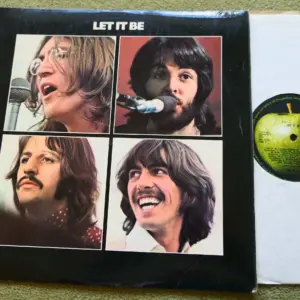
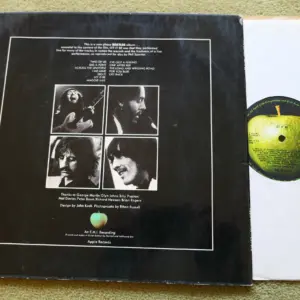
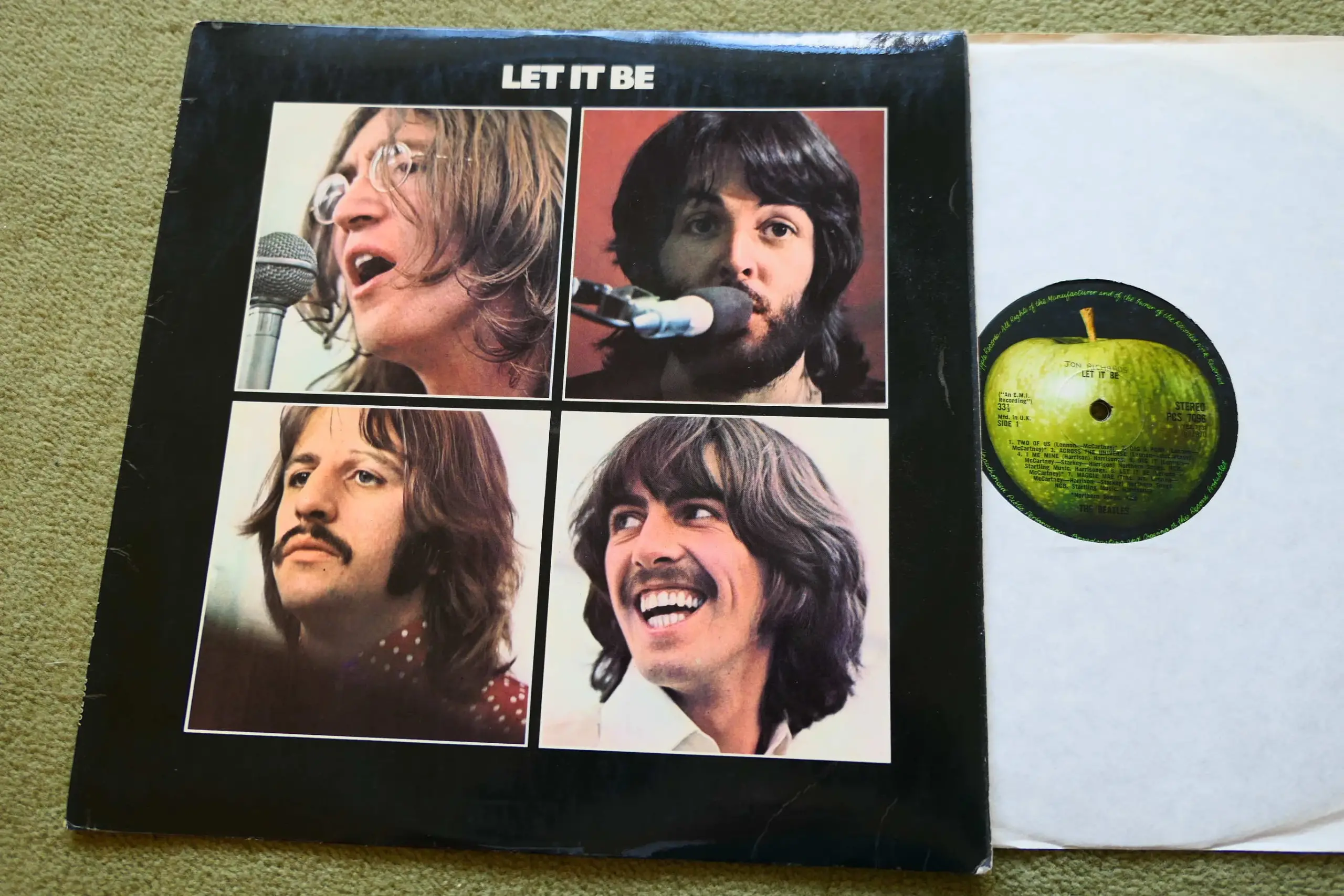
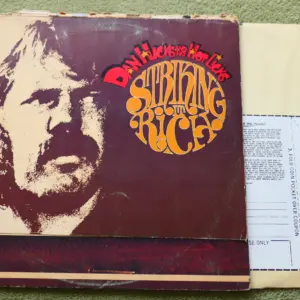
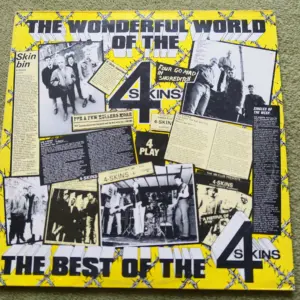
Reviews
There are no reviews yet.